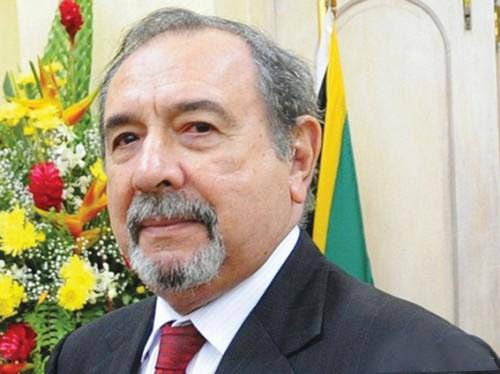Absence may not be bad

JADA LOUTOO
FORMER Chief Justice Michael de La Bastide thinks the prospect of having Chief Justice Ivor Archie “off the scene” has some attraction. It could mean the “voices now raised at an unusually high pitch” might be lowered for the current imbroglio surrounding this country’s third-highest office-holder to be resolved more calmly, he said.
Making it clear he did not want to give unsolicited advice, since, he said, he had no reason to believe any he gave would be heeded, de La Bastide said the CJ’s absence might or might not prove beneficial.
In an interview with Newsday, the former CJ and president of the Caribbean Court of Justice said, from an objective standpoint – his own – “a little stand-back from the fire and fury going on and allowing calmer counsel to prevail might not be a bad thing.” On Wednesday, Archie said he had decided not to go on his proposed six-month sabbatical.

Instead, he said he would use some accrued vacation leave to, “rest, reflect and study” in the United States.
He said he was entitled to 35 weeks’ unutilised vacation. But, according to the Judges Salaries and Pensions Act, vacation for judges cannot “be accumulated from one year to another.”
MUST GET PERMISSION
The Prime Minister pointed this out to President Anthony Carmona on Thursday in his letter to the President, in which he addressed the issue of sabbatical leave for judges. On Wednesday Archie communicated to the President that he intended to take vacation instead of a sabbatical.
De La Bastide said the Chief Justice has to seek the permission of the President if he wishes to leave the country.
“According to the Independence Constitution, the Chief Justice was appointed by the Prime Minister.
“That was changed in the Republican Constitution: the Chief Justice is now appointed by the President and selected after consultation with the Prime Minister and the Leader of the Opposition. But the final word is with the President.”
To clarify the issue of judges’ entitlement to sabbatical leave, the Prime Minister intends to have the Attorney General refer the matter to the High Court for its interpretation.
De La Bastide was confident that the matter can be adjudicated impartially by the High Court, despite some concerns being expressed about judges ruling on a matter which has implications both for themselves and for their superior, the CJ.
“I won’t go so far as to say I have confidence in relation to every judge, but I have the confidence in the great majority of judges.
“Unfortunately, some judges may have disqualified themselves by the stance they have taken.
“I would say the problem with the others, I am not suggesting that they are prone to or guilty of actual bias, but by their public statements, they have given support to a case of apparent bias.”
CAN’T HAVE TOTAL SEPARATION
In 2007, the High Court was asked to undertake a similar exercise over the question of whether judges and magistrates should be exempt from filing declarations with the Integrity Commission, in accordance with the Integrity in Public Life Act.
The court declared that neither judges nor magistrates were required to declare their assets.
A late appeal by the AG was not entertained in the appellate court.
On the issue of separation of powers between the Executive and Judiciary, de La Bastide said there was not a total separation, nor did he think it would be practical for the Judiciary to have “complete independence,” as it could lead to conflict, as seen in many other countries.
He said since the terms and conditions for judges had an impact on the expenditure of the State, it cannot be left entirely to judges.
“In my view the present arrangement, where the Salaries Review Commission recommends changes to terms and conditions which are subject to acceptance by Cabinet, is not an unreasonable impingement on the separation of powers.”
De La Bastide was Chief Justice from 1995 to 2002. He was sworn in as a member of the Privy Council by the queen on July 27, 2004 and appointed president of the Caribbean Court of Justice in 2004. He retired from the CCJ in 2011.


Comments
"Absence may not be bad"